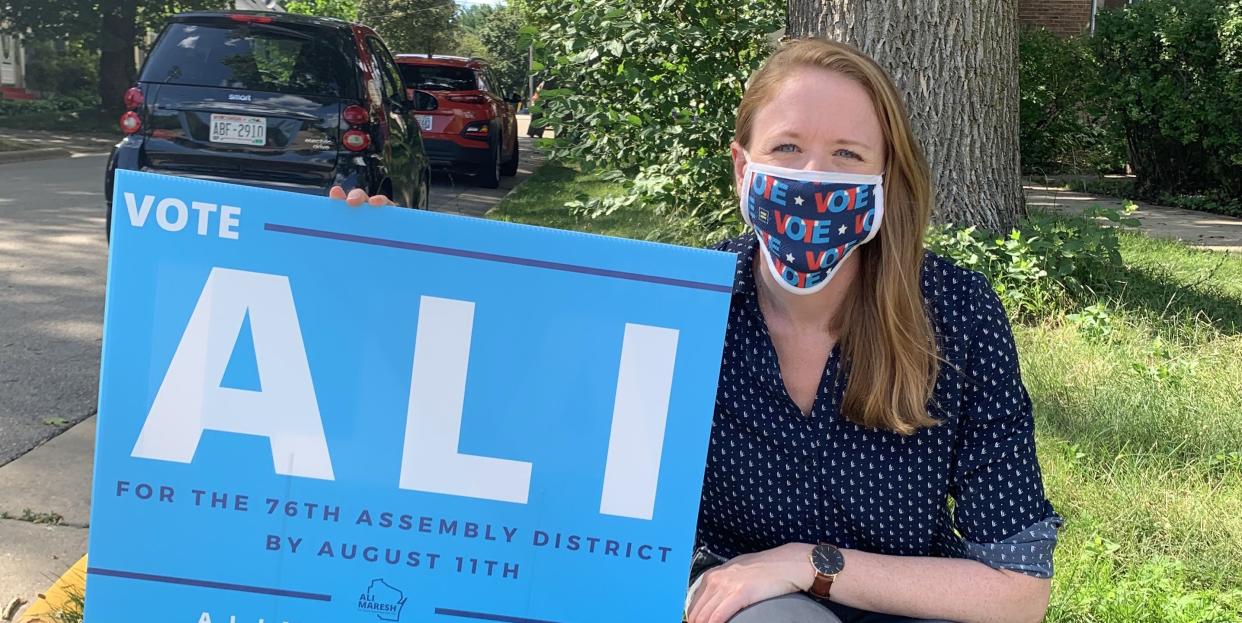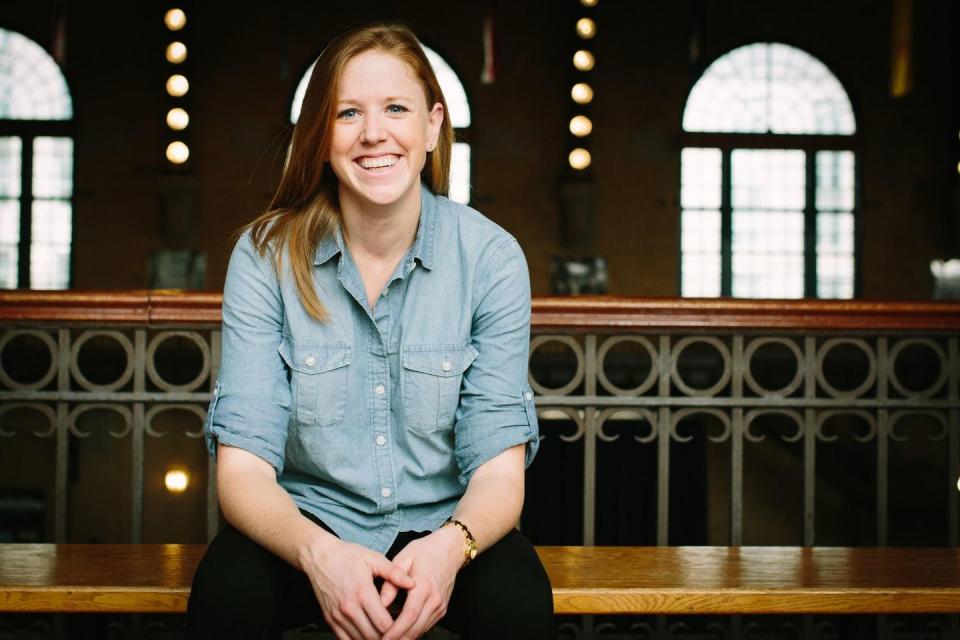'I Chose To Run For Office Because Of A Panic Attack'

We’ve all been there: nervously awaiting a high school presentation. But this time was different. As I sat in my history class in Wisconsin, my vision started to blur, a rash covered my face and arms, and all I could hear was the sound of my pounding heart. I didn’t know what was happening—I just knew that I had to get the heck out of that classroom. Now, I know that I was experiencing my first panic attack. I wish I could tell you it was my last. But I’ve had many since—some so bad I that I've ended up in the emergency room.
I’ve struggled with anxiety and depression since the age of 16. Growing up, I lacked self-confidence and quite frankly, didn’t like myself. This self-loathing only got worse in my twenties, when I went through the painstaking process of coming out as gay. Although I was often met with love and acceptance, my fear of being judged and rejected by other people (the very definition of social anxiety) controlled my life.
I masked my mental-health issues well. I tried to keep my anxious thoughts at bay by staying in a constant state of distraction. I buried myself in work, filling the gaps with news or social media consumption, and I tried to stay as socially active as possible.
One common misconception about people who live with social anxiety is that “you don’t like people.” Nothing could be farther from the truth for me: I considered myself a socially anxious extrovert. So, I stayed the course. I regularly grabbed dinner with friends, gave presentations, and attended family gatherings, all with a smile on my face.
The problem is that I struggled to remember many of these events because I took too much anti-anxiety medication in an attempt to survive them. What may have seemed like everyday occurrences to some were often painful experiences for me. I even developed a playbook of sorts for dealing when a panic attack hit—alcohol was my good friend, and I can’t tell you how many “urgent” phone calls I faked or the amount of times I hid in the bathroom to try to calm down.
So, here I am, running in my first political race in Wisconsin, where I’m constantly subjecting myself to judgment and rejection.
Having the confidence to run for office didn’t come easily. In my late twenties, out of pure exhaustion and with the help of a counselor, I finally abandoned my negative coping strategies. I stopped numbing my pain. This meant no longer turning to a pill or a glass bottle when a panic attack hit. Instead, I practiced what’s called “exposure therapy,” which meant that I sought out situations that triggered my anxiety. Since my panic attacks stemmed from social interactions, it was easy to find these situations. Initially, it was awful. I would feel the panic attack come on, knowing full well that I had no quick fix to manage it. It took resiliency: repeated efforts of deep breathing when the moment hit, and practicing mindfulness on a daily basis.
Learning to be more present and mindful of course meant addressing my addiction to technology. Like most millennials, I grew up constantly connected to screens. Not to mention, I studied and worked in communications. What I didn’t realize was that my tireless media consumption contributed to my anxiety.
It wasn’t until I put down my phone, shut down the social media apps, and nixed my other numbing strategies that I had time for self-reflection. This proved liberating because I finally got to know myself and even started to like myself. With this newfound self-respect came a newfound confidence—and a desire to help others who might be struggling with their mental health, too.
In 2017, I quit my job in D.C. and moved back to Wisconsin to start working as a public speaker about wellbeing in the digital age.
I also began teaching a mass communications course at a local community college and eventually started working for the state government on children’s mental health. I came into the government as a communications specialist, where I wrote speeches and talking points for senior officials.
But why run for office? Because as my story shows, living with a mental health condition can not always be seen. I am running to make it heard.

While working for the government, I learned that nearly half of female high school students in Wisconsin report living with high levels of anxiety, according to a 2017 report. Other research from 2019 found that one in five Wisconsin children lives with a mental health condition. Wisconsin is not alone. Across the nation, there has been growing concern about rising rates of mental health conditions among adolescents and young adults. And this was a major concern before the pandemic.
With every project I worked on for the state government, I tried to convey the gravity of the mental-health situation in Wisconsin. It wasn’t enough.
I soon realized my position had little power to truly address these rising trends. I wanted to be an advocate for bold solutions. I reminded myself that my antidote to living with anxiety and depression has always been advocating for a cause, so I started looking for opportunities to make a greater impact.
When I learned my current State Assembly representative wasn’t seeking re-election this fall, I was in. I knew mental health would be my top priority and that I’d be open about my journey despite hearing this was a “risky” move from a veteran political advisor and even some family and friends.
This issue is too important to stay silent. We need lawmakers to champion mental health policy, especially at this moment where all of us are dealing with emotional pain as we navigate living through a relentless pandemic. This means pushing for increased access to healthcare, removing barriers to care by providing mental health support in schools and communities, and reallocating funds from law enforcement to social services. My sincere hope is that by running as myself, others who live with mental health conditions will be empowered to speak up and speak out. Because we all have a story to share.
Ali Maresh is a mental health advocate and thought leader on wellbeing in the digital age. She is currently running to represent Wisconsin’s 76th Assembly District in Madison.
You Might Also Like

